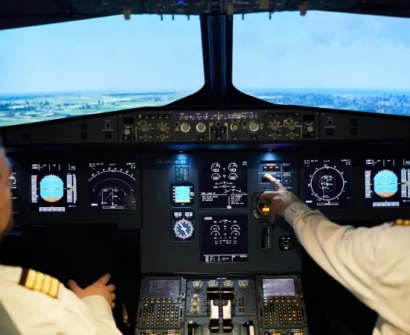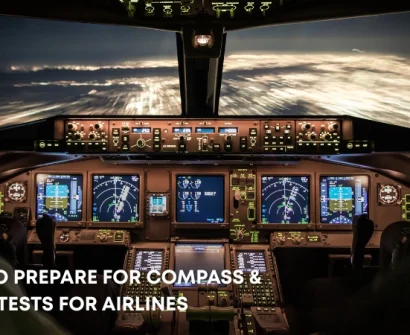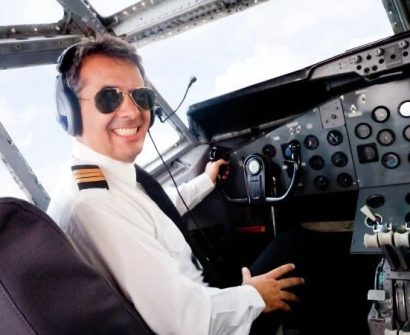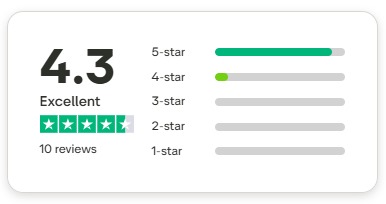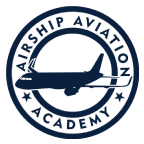Currently Empty: ₹0.00

The aviation sector offers one of the most thrilling and rewarding careers. It promises a good salary and the opportunity to see the world from above. However, preparing for a pilot’s exam is not just about flying a plane but also involves a lot of responsibility, rigorous training, and thorough preparation. A pilot ensures the safety of passengers and crew members, and their decisions can have pivotal outcomes. This makes the path to becoming a pilot challenging but incredibly fulfilling.
Passing the pilot’s exam is a crucial step to achieving this dream. This blog provides insight on how to become a pilot, tips, and recommended books and highlights the vital skills needed to help you navigate your way through this responsible yet rewarding journey.
You must be wondering what to expect in an A320 Pilot Interview—preparing with the right questions can make all the difference.
Some Crucial Tips to Pass the Airline’s Pilot Exam
- Get yourself to know about the Exam Structure and Requirements. To pass the pilot’s exam, it’s essential to understand the exam’s structure and requirements. The Directorate General of Civil Aviation (DGCA) in India looks after pilot licensing and regulations. The exams generally cover subjects like air navigation, meteorology, air regulations, technical general, and technical specific.
- Getting familiar with the format of these exams is essential. Planning also includes the types of questions and the passing criteria of the exam. Knowing the specific requirements for different pilot licences, such as the Student Pilot License (SPL), Private Pilot License (PPL), and Commercial Pilot License (CPL), will help you plan your preparation effectively.
- A well-structured study plan is critical to success in the pilot’s exam. Start by setting realistic goals and a timeline for your preparation. Allocate specific time slots for each subject. Also, make sure you cover all necessary topics, including meteorology, navigation, aircraft systems, and flight regulations. Regular study sessions are more effective than last-minute anxiety.
- Use various study methods such as reading textbooks, watching instructional videos, and taking practice tests. Regular self-assessment will help you identify weak areas and focus on them, improving your overall knowledge and retention of the material.
- Attending a reputable flight school can significantly boost your chances of passing the pilot’s exam. Quality flight schools offer structured training programs, experienced instructors, and access to modern training facilities and aircraft. These schools provide both theoretical knowledge and practical flying experience, ensuring you are well-prepared for the exam. Choose a school certified by DGCA and has a proven track record of success.
- Preparing for the pilot’s exam is not just a mental challenge but also a physical one. Pilots must meet specific medical standards to obtain their licences. Make sure you maintain a healthy lifestyle and diet. Also, exercise regularly and sleep adequately. Managing stress is equally important for aspirants. practice relaxation techniques such as mindfulness or yoga to stay calm and focused.
- Regular medical check-ups will help you monitor your health status and address any issues promptly. Staying fit and healthy will ensure you meet the physical requirements needed for a pilot’s licence. Also, adhere to the suggestions of the doctors to maintain good health.
Books to Refer for an Airline’s Pilot Exam
- Aviation Meteorology by I.C. Joshi is a book that is widely used in India for understanding weather phenomena which is crucial for safe flying. It covers topics like atmospheric pressure, humidity, and weather patterns, providing an in-depth knowledge of meteorology essential for pilot exams. It also has the question bank at the end of the chapter to ensure the simultaneous learning of the aspirant.
- Air Navigation by retired Wing Commander R.K. Bali is an essential book for mastering air navigation; it covers all the basic to advanced concepts required for the pilot exams in India. The book includes detailed explanations and practice problems that help in understanding navigation techniques and calculations. The questions are given to brush up on the memory of the aspiring pilot.
- Aviation Maintenance Technician Handbook – General by the Federal Aviation Administration (FAA) is widely recommended for students in India as well. It covers technical aspects of aviation, including aircraft systems, maintenance procedures, and safety protocols, which are crucial for the technical general portion of the exam.
- Pilot’s Manual Series by the Directorate General of Civil Aviation (DGCA) is specifically designed for Indian pilot students and covers all the topics required for DGCA exams. They provide detailed information on air regulations, aircraft technicalities, and operational procedures. Also, there are plenty of study materials provided by the ground classes Institute that are relevant for flying.
Some Important Skills Required to Become a Pilot
- Aspirants need effective communication skills to pass through the interview of an airline. They also need to communicate clearly and effectively with air traffic control, crew members, and passengers. Good communication ensures smooth operations and helps manage emergencies efficiently. Clear and concise communication is crucial for the safety and coordination of flight operations.
- Aspiring pilots should have situational awareness to pass the ADAPT Test. They must constantly be aware of their surroundings which includes weather conditions, other aircraft, and potential hazards. Situational awareness helps in making informed decisions and maintaining the safety of the flight. It’s about staying alert and aware of everything happening inside and outside the aircraft.
- Problem-solving and decision-making are among the most necessary skills. Pilots often face unexpected situations that require quick thinking and effective problem-solving. The ability to make sound decisions under pressure is critical. Pilots should assess situations immediately and choose the best course of action to ensure safety and efficiency.
- Aspirants should have technical knowledge and proficiency to pass the written exam or an interview. A deep understanding of aircraft systems, flight principles, and navigation is essential. Pilots must be technically proficient and able to operate advanced avionics and systems. Continuous learning and staying updated with the latest aviation technology and regulations are important for pilots.
Conclusion
Becoming a pilot is challenging but rewarding. This journey requires a huge amount of dedication, hard work, and a passion for aviation. Knowing the exam structure, creating a solid study plan, enrolling in a reputable flight school, and maintaining your health can improve your chances of passing the pilot’s exam. Also, referring to the right books and developing essential skills will help you become a competent and confident pilot. The Airship Aviation Academy is a dedicated Institute that will help you navigate your way through the skies. For any help, you can contact us. The path to the skies is demanding, but with the right preparation and mindset, you can achieve your dream of flying.

